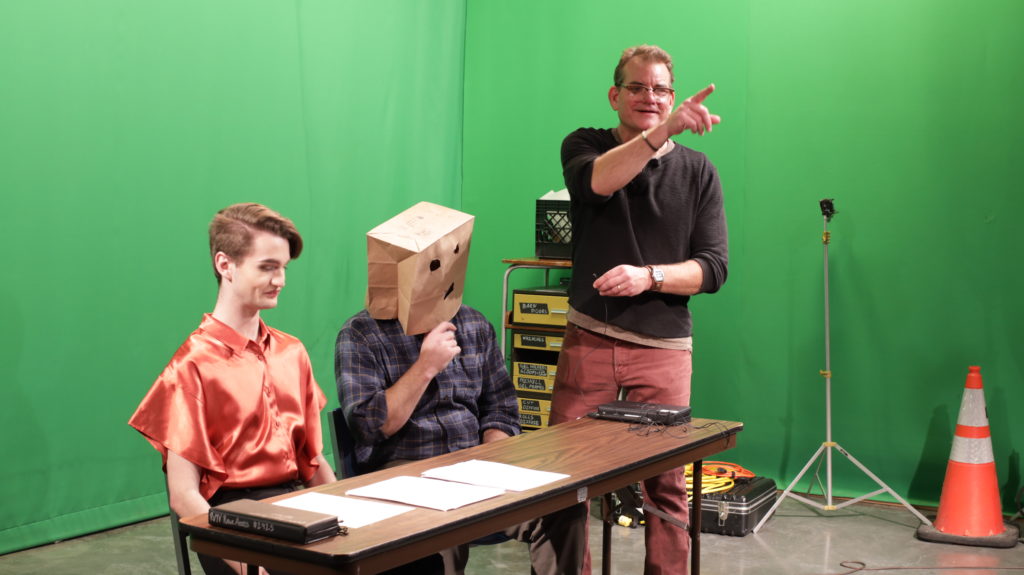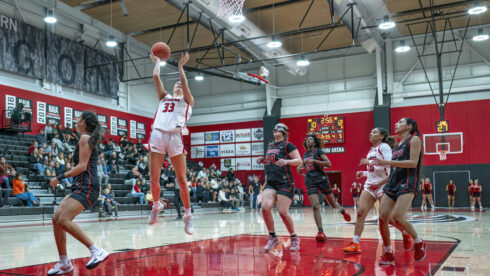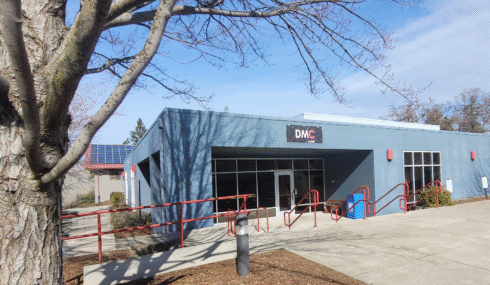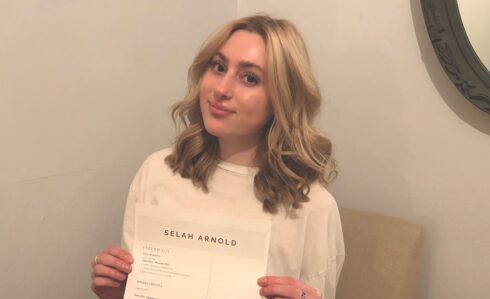In Fall 2019, SOU launched its new Digital Cinema major. Its courses offer students a unique and hands-on curriculum, as well as a number of new classes. One of those classes is Advanced Production Sitcom taught by property master Jim Falkenstein (Reba, Fuller House) and producer Randy Cordray (The Office). The two met back in Hollywood when Randy hired Jim to work on a pilot of a show called 16 to Life. Since then, they both moved to the Southern Oregon area where they reconnected and decided to teach this class together. Students had three class preparation days, two weeks of pre-production, and three ten-hour shoot days to film a 30 paged original TV pilot written by Jim and his wife Beth, titled Local Heroes. On top of this, each student would play a different role on set for each day of production, adding to the already difficult challenge.

The Siskiyou caught up with Randy and Jim to talk about why they wanted to teach this class, what expectations they had coming in, and what they want to happen next.
Siskiyou: What made you want to teach this class?
Jim Falkenstein: I got my master’s degree at the University of Michigan in Film and Television and when I was there I snuck in and started a term early helping out at the TV station and I liked doing it and I always knew I wanted to try it again. So, I came here and checked out the RVTV station. I just enjoyed watching people put things together. But quickly realized you are limited when you only have a couple of volunteers and I thought, “I want to teach that class” . . . I believe that students in this area could easily work in Los Angeles if they knew that they could and had confidence. We wanted to show that if you have the right attitude, and with a little bit of help, if you want to go you can.

Randy Cordray: Going off that, during the seminars I used to teach in Los Angeles where we would spend the morning talking about entry-level jobs in Hollywood and how a set operated. Often, I taught these seminars in a campus television station. When I did that I would bring a script of some show I was producing and we would shoot some scenes and I would assign people parts to play and others as crew members. We would shoot a scene, or three, from a sitcom, and we would sit down look at them and talk about them. That was kind of a seed that I had done in the past and what I brought to Jim and said, “Hey, this is something that I think we could do together.”
Siskiyou: What were your expectations coming into this class?
JF: As students? I thought it was going to be more uneven. I thought there were going to be three or four really strong students, the basic middle who are kind of confused sometimes but working hard, and then four who were just high all of the time [laughs]. But really, it ended up being like 98% of everyone was on it and at least focused and engaged, and everyone had different skill levels or assets. We were stunned at how engaged you were and how much work you put into it outside of the class, and the ideas you brought to class and the preparation that was done. Way beyond our expectations! And the quality of your skill levels!

RC: Jim is exactly right . . . We’ve learned as much in this class as the students did. We learned a lot about the quality of students here at SOU and we were wildly impressed. We felt like we got the cream of the crop advanced level students that we had hoped for, and we would not have been as successful if we didn’t get that wonderful cross-section of the top-level people.
Siskiyou: What do you think of our Digital Cinema major?
RC: It’s fantastic. The fact that this exists here, in Southern Oregon, in a smaller school, is fantastic . . . the major is a wonderful thing and it has inspired me, and I think Jim, to be more involved here at the school. We have more lessons to teach and more ideas in our heads.
JF: And also we see our friends saying they’re excited about this from Los Angles and saying that they want to get involved. It’s connecting this university to our friends in Los Angeles and vice versa and it’s kind of like it’s building on itself, these two worlds, and it’s so fun . . . I’ve been hanging around RVTV and the DMC for years and it seems like it’s starting to pick up and hit its stride. What I would hope is that there’s some more communication with the theatre department and [to] give them the gift of putting those actors on camera and letting them see themselves in that world, and then them reciprocating with gifts of their talent for our projects.
RC: Our goal is to help lots of different people in a big cross-section at this university. We think we have a lot to offer.
End of interview
You can watch the pilot of Local Heroes Saturday, March 14th at 1 p.m. in Meese Hall!
All photos by Moriah Doepken and Anna Mendes



